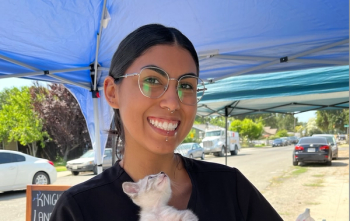
- dvm360 July 2020
- Volume 51
- Issue 7
Can dogs be used to screen for COVID-19?
Several studies in the U.S. and Europe are exploring the canine nose as a potential surveillance system for the novel coronavirus.
A new research initiative is underway at the University of Pennsylvania School of Veterinary Medicine (Penn Vet) to determine whether dogs can discriminate between positive and negative COVID-19 samples. Backed in part by the new Penn Vet COVID-19 Research Innovation Fund, the study is exploring the sensitivity and specificity of scent in hopes that trained dogs can detect the virus successfully, particularly among asymptomatic patients.
“Scent detection dogs can accurately detect low concentrations of volatile organic compounds (VOCs) associated with various diseases such as ovarian cancer, bacterial infections and nasal tumors. These VOCs are present in human blood, saliva, urine or breath,” Cynthia Otto, DVM, PhD, a Penn Vet professor and director of Penn Vet’s Working Dog Center, said in a
Announced at the end of April, the study began with eight dogs over the course of three weeks. Through the process of odor imprinting, the dogs were exposed to COVID-19–positive saliva and urine samples in a laboratory setting. As the dogs continue to learn how to recognize the odor and potentially discriminate between positive and negative samples, a baseline for testing will begin to take shape. This will help determine whether the dogs can identify infected people in real-life situations.
Penn Vet’s Working Dog Center is well known for its successful canine training programs to detect explosives, drugs and various medical conditions, including cancers. To assist in its ongoing research, the university is currently
Similar research is also being conducted throughout Europe. In a preliminary report published by
Overall, the dogs were able to correctly determine the presence of infection in an average of 95% of samples, with four of the eight dogs successfully identifying a positive sweat sample 100% of the time. The authors concluded that from their findings “there is very high evidence that the armpit sweat odour of COVID-19 persons is different, and that dogs can detect a person infected by the SARS-CoV-2 virus.”
Finnish researchers took a slightly different approach. Veterinary and human medical researchers at the University of Helsinki say they’ve successfully trained dogs to differentiate between positive and negative SARS-CoV-2 urine samples. “It was fantastic to see how fast the dogs took to the new smell," said Anna Hielm-Björkman, DVM, PhD, leader of the DogRisk research group that conducted the study.
For the next phase of the study, researchers will retest the dogs in a randomized double-blinded setting, introducing them to a larger number of both positive and negative patient samples to determine whether the dogs are detecting the presence of SARS-CoV-2 or another virus.
Canine COVID-19 detection studies are also taking place in Germany and England, reportedly garnering similar positive results. Using dogs to detect COVID-19 could greatly increase the speed at which people could be tested in large venues and gatherings, such as sporting events, transportation hubs, hospitals, and schools.
“The potential impact of these dogs and their capacity to detect COVID-19 could be substantial,” Dr. Otto said.
Articles in this issue
about 5 years ago
I like big blocks and I cannot lieabout 5 years ago
Why are there so many different models for COVID-19?about 5 years ago
Vector-borne disease prevalence in dogs with proteinuriaabout 5 years ago
Modulating the immune system to fight for goodabout 5 years ago
FDA OKs cell therapy clinical trial for feline gingivostomatitisabout 5 years ago
Hillbilly beardabout 5 years ago
The right task at the right timeabout 5 years ago
Can pandemic rules be broken?about 5 years ago
What at-will employment means for veterinariansabout 5 years ago
New study lays groundwork for heartworm vaccine developmentNewsletter
From exam room tips to practice management insights, get trusted veterinary news delivered straight to your inbox—subscribe to dvm360.






